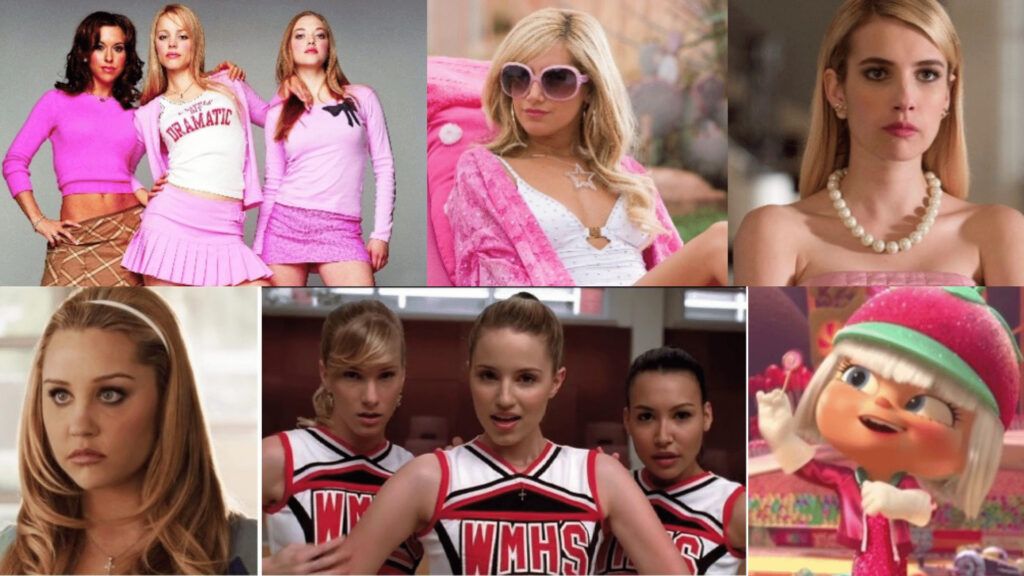The Rise of Girly Culture: A Celebration or Reinforcement of Stereotypes?
Girls are making a big splash in the world of pop culture and it's time for the boys to step aside. They are stepping into the spotlight with girl power anthems and a celebration of girlhood that transcends age. While this may seem like a reason to celebrate some people are concerned that it might be a sneaky way to reinforce negative views towards women.
On one hand the rise of girly culture is seen as a positive thing. It shows that girls can be strong confident and influential. They are reclaiming their place in popular culture and challenging the idea that it's a boys-only club. Girl power anthems and movements serve as a source of inspiration and empowerment for girls of all ages.

However there is a flip side to this trend. Some people worry that the celebration of girlhood may be a way to keep women in traditional and limiting roles. They think that it could be a form of misogyny in disguise. It's important to be aware of whether these representations are truly empowering or if they are enforcing stereotypes and holding women back.
While it's exciting to see girls taking center stage and embracing their power it's crucial to analyze whether this celebration is truly empowering or if it's subtly reinforcing harmful ideas about women. By being critical and supporting positive representations we can ensure that the world of pop culture truly becomes a space where girls are celebrated and respected.
The Girly World: Trends and Behaviours
Girly trends aren't just limited to young girls or females anymore. People of all ages and genders are embracing the "girly" lifestyle. This means that girlhood is becoming a fun and inclusive party for everyone to enjoy. There is a wide range of girly trends from wearing a Cherry Girl outfit to going on a Hot Girl Walk indulging in Girl Math and preparing a simple Girl Dinner.
These trends are sweeping through popular culture and beyond with people taking on these activities and identifying with the girly lifestyle. It's a way to celebrate femininity and all of its associated traits such as being nurturing playful and stylish.
The Power of Girls in Pop Culture
Like the 90s lads girls are now the main characters in popular culture. TV shows like Girls and books like Gone Girl have shown that girls can be imperfect and still captivate audiences. The rise of girl bosses led by the likes of Emily Weiss of Glossier fame has also redefined success and beauty standards. Films concerts and biopics like Barbie Taylor Swift's stadium tour and Priscilla are all exploring and challenging what it means to be a girl.
The Dilemma of Misogyny
While the rise of "girly" culture embraces femininity some argue that it strengthens stereotypes and misogyny. The idea of the "girl boss" often focuses on attractiveness and success within traditionally feminine industries. Language also plays a role as using the word "girl" in place of "woman" can have negative connotations. Experts emphasize the importance of paying attention to language and its impact on how individuals perceive themselves and others.
Personal Perspectives: Embracing Girlhood
Embracing girlhood is not seen as a negative by everyone. To some being a girl is an empowering identity that goes beyond societal expectations and age restrictions. Girlhood offers an alternative to the traditional narrative that often focuses only on marriage and motherhood. Instead it becomes a lifestyle choice that allows individuals to explore their unique interests and define their paths.
Girlhood also creates a sense of sisterhood and community. It forms connections between people who share similar experiences and challenges. These communities offer support and understanding allowing individuals to navigate through life's ups and downs together.
Embracing girlhood becomes a way to celebrate one's femininity and cultivate a sense of empowerment and self-acceptance. It allows girls and women to break free from societal constraints and embrace their individuality.
The Gender-Neutral Girl
The concept of girlhood has evolved and expanded in the digital age. It has become a gender-neutral term that represents fellowship support and intimacy. Generation Z embraces girlhood as a celebration of optimism and rejects hierarchy. Being part of a team like the England women's football team doesn't preclude being one of the girls.
Exploring the Meaning of "Girl"
The word "girl" has always had different meanings and interpretations. It can represent both positive and negative archetypes such as the good girl and the bad girl. The author of this piece reflects on her journey of understanding girlhood and the expectations that society places on individuals associated with this term.
One example that challenges the notion of girlhood being lesser is Taylor Swift's concerts. These events attract thousands of enthusiastic fans proving that girlhood is something to be celebrated rather than diminished. Swift's concerts create a sense of empowerment and solidarity where fans come together to appreciate and embrace girlhood in all its complexities.
By questioning societal expectations and embracing a more inclusive and nuanced understanding of girlhood we can break free from the limitations and stereotypes often associated with this term. It allows individuals to define girlhood on their terms recognizing its value and significance in shaping identities and fostering community.
Embracing Linguistic Changes
Women have often been at the forefront of linguistic changes throughout history. They adapt to new language forms faster than men adopting new expressions and speech patterns. The rise of uptalk associated with teenage girls in the 1970s is now used by both genders. Language evolves through peer influence and cultural shifts.
The rise of girly culture in today's popular culture is an exciting and diverse phenomenon. Some people believe it encourages negative stereotypes and inequality between genders while others view it as a way for girls and women to express themselves and feel powerful.
On one hand critics argue that girly culture reinforces harmful stereotypes by focusing on appearance and traditional feminine traits. They worry that this may limit girls' opportunities and perpetuate inequality. Additionally using terms like "girlboss" might trivialize women's accomplishments and undermine their professional abilities.

On the other hand many supporters see girly culture as a positive force that empowers girls and women. They believe it creates a welcoming community where individuals can embrace their femininity and form meaningful connections. By celebrating girlhood this culture challenges the notion that being feminine is inferior or weak.
As language and culture continue to evolve so does the meaning of being a girl. It's important to recognize that girlhood is not limited solely to biological females but extends to anyone who identifies with or resonates with the concept.
